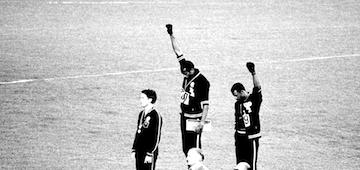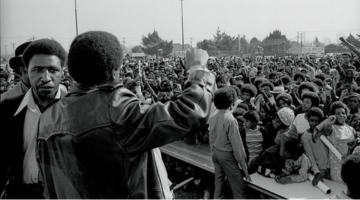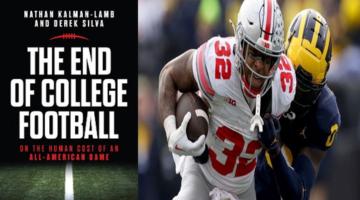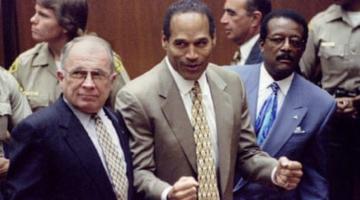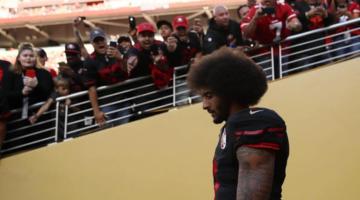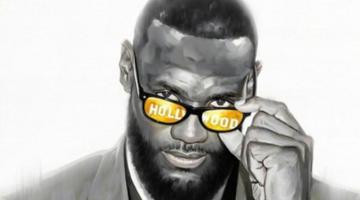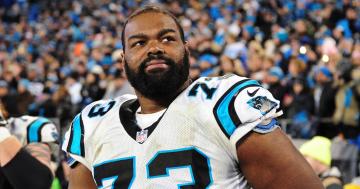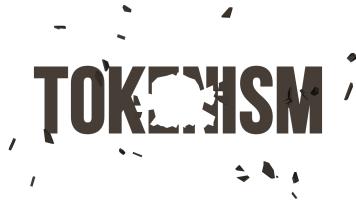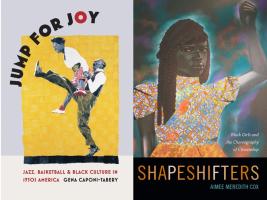In this feature, we interview organizers, journalists, scholars, and athletes working at the intersection of sports and Black struggle.
This week, we interview Dewitt King. Dewitt King is a PhD candidate in American studies at the University of Minnesota. He is an interdisciplinary scholar who studies racialization, spatialization, Black knowledge production and political/platform economies. His dissertation project looks at the ways Black athletes navigate precarious labor practices in sport industries.
What sports headline or controversy is grabbing your attention these days?
Presently, I am really invested in following the impact of Names, Images, and Likeness (NIL) in college sports. I think most sport scholars, regardless of topical focus, are closely following the way this policy will forever change college sports in the United States. Three things immediately come to mind when I think about the long-term material impacts from NIL: positive/negative impact on college athletes, the reformulation of feeder and minor leagues, and how this more broadly impacts labor polices in the US. First, while I hope student athletes can benefit from this policy. I know that this policy will not fully address the needs of marginalized and vulnerable student athletes. I feel this oversight will in fact penalize these students. In particular, I am concerned about how these students will navigate paying taxes on the money generated from this policy. Secondarily, I am interested in the ways this policy might impact professional sports and their minor leagues. For example, minor league baseball is incredibly precarious and I am wondering if this policy might change the relationship that college baseball players have to the minor leagues which work as a feeder system to MLB. And third, I am curious how this policy might shift and shape how we think about labor in the US more generally. At the heart this policy is a fight for equitable pay. I find it quite interesting that this policy is unfolding during this moment of labor upheaval in the US.
You study combat sports like boxing and professional wrestling. What are some ways that anti-Black ideologies operate in these spaces? In what ways are these ideologies resisted?
Combat sports, which include boxing and pro wrestling, are extremely anti-Black. But the way it manifests varies considerable across each sport. For example, boxing as a sport is fueled by anti-Black logics and this is quickly illustrated when you go to Twitter on fight nights when bouts take place between Black boxers and non-Black boxers. The commentary quickly delves into targeted racial harassment directed at Black boxers especially if they win the bout via tweets. From the moment that Jack Johnson beat Tommy Burns in 1908, boxing has operated and tapped into racial fault lines that I would argue feed into the excitement and brutality of which makes boxing the charismatic violent spectacle that it is. However, in recent years athletes have been able to find spaces of resistance even within these anti-Black sporting organizations. For example, in pro wrestling Black wrestlers have leveraged their cultural capital and used their platform to support social movements that reaffirm the humanity of Black people. World Wrestling Entertainment (WWE) wrestler Titus O’Neil is a noted philanthropist who continually works toward social justice. He has even been attributed to as helping some his coworkers (white wrestlers) understand the impetus of the BLM movement. Further, wrestlers have even used their gimmicks and attire to show support to progressive social issues. In 2020, former WWE, current AEW wrestler Keith Lee wore BLM trunks and jacket during his PPV match on June 7, 2020.
The recent controversies surrounding Simone Biles and Naomi Osaka have led researchers like yourself to think about the intersection of mental health and sports. What pressures are placed on these athletes by social media, fan culture, and the corporate sports world?
The prevalence of social media in sporting culture is a double-edged sword for athletes, especially for Black female athletes. Social media has changed the relationship between the fans and the athletes putting immense pressure on athletes. This shift in proximity gives the fans and detractors the ability to @ athletes at will, which places their mental health in the crossfire as negative commentary escalates and quickly becomes amplified micro aggressive digital encounters. Black women across multiple social media platforms experience misogynoir. Feminist scholar Moya Bailey, who coined the term, defines it as anti-Black sexism. Experiencing misogynoir online coupled with the pressures of being an athlete, especially for those who are celebrated as a premier athlete, makes mental health a priority as sport institutions in the US culture operate in what I call a culture of disposability. So, I applaud Simone and Naomi for putting not only their physical health first but also their mental health. In the Black community, mental health is just now getting the attention that it deserves as Black folks have often suffered in silence. Both ladies have been courageous in pushing back at institutional norms that puts their mental health in jeopardy. This “politics of refusal” that they both are engaging in can be and should be connected to larger progressive movements that athletes are engaging in. Biles and Osaka are engaging in progressive change and action through a practice that centers the humanity of Black female athletes. My hope is that the work that they are doing inspires others to do similar acts of resistance in the world of sports.
How did you become interested in studying race, sports, and politics?
I did not come to graduate school with the intention to study sports. I fell into haphazardly actually. Initially, I considered myself an urban studies scholar. I was all about studying urban space as I wanted to understand the ways cities were constructed. It was suggested to me one day by a professor that I should consider focusing my dissertation project on something that was important to me and that I loved as the dissertation process was quite arduous. This conversation made me reflect on my interests and it dawned on me that pro wrestling was something that I had long been a fan of and that held a special place in my heart. When I was 17 years old, I decided that I would become a pro wrestler (lol) and I found a school to train at during my senior year of high school. I trained for 9 months and subsequently (with two of my training peers) embarked on independent wrestling career in the Carolinas for a year and a half. Upon revisiting this time in my life, I realized how overlooked pro wrestling was in academia and I decided to focus my dissertation project on studying the experience of Black pro wrestlers. Additionally, as I began thinking about pro wrestling as a scholarly project my views about sports writ large changed and I begin to make important connects to the ways sports are part and parcel of our daily lives, are intimately connected to culture, politics, and economics and are often rendered invisible due to its ubiquity in our lives. Having this epiphany helped me realize that sports could be utilized as vehicle to examine many of the questions that I wanted to investigate in cities.
Which books have most impacted the way you theorize about sports and Black struggle?
Beyond A Boundary by C.L.R James, Race, Sport and Politics: The Sporting Black Diaspora by Ben Carrington, and Jack Johnson, Rebel Sojourner: Boxing in the Shadow of the Global Color Line by Theresa Runstedtler are books that provide the intellectual infrastructure to the way I conceptualize and theorize about sports and the Black struggle. Beyond A Boundary is a foundational sport text that illustrates how intimately connected race, power, and colonial ideology are in the culture of sport. This book for me, and many other sport scholars, provides the blueprint for critical study of race and power in sport. Further, this book provides the connective tissue between sport studies and the Black Radical Tradition. Ben Carrington’s text is especially important to my work as he puts the sociology of sport into conversation with Black cultural studies (Hall and Gilroy) in a way that shows that Blackness did not only shape sport, but sport shaped the racialization of Blackness as well. This is important as Carrington shows us how Black athletes are constructed and function as political categories. And Runstedtler, in her text, shows the globality of sport through a historicization of the life and legacy of Jack Johnson who became boxings first Black heavyweight champion of the world. This text lets the reader know that sports have long been globally situated and that in fact anti Blackness being global is not a 21st century phenomenon. Each text has pushed me to be a much more critical, thoughtful, and reflective as a sport studies scholar.
Roberto Sirvent is editor of the Black Agenda Report Book Forum.

